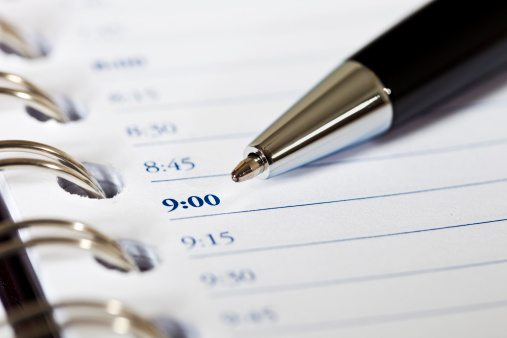
This upcoming weekend is the first online seminar that I’ve ever offered on how to increase productivity.
It’s unlike anything I’ve seen out there today and I think it has the potential to change how you invest your time and dramatically increase your productivity. The seminar is going to be fast-paced and full of ideas that you can immediately put into practice.
One thing that successful people do to increase productivity is they avoid to-do lists. These lists are rarely as effective as effective as scheduling time.
“Scheduling,” says Cal Newport, “forces you to confront the reality of how much time you actually have and how long things will take.”
It’s really easy to add things to a to-do list. Because it’s so simple, these lists tend to grow and grow. Even worse they encourage us to say yes to almost everything because, well, we can just add it to our list. This means we’re not discriminating and we’re not as conscious about controlling our time as we should be.
As Steve Jobs said, it’s easy to say yes but the real value comes from saying no. Warren Buffett agrees: “You’ve got to keep control of your time, and you can’t unless you say no. You can’t let people set your agenda in life.”
Most people have the default of saying yes to everything. Personal relationships aside, the default, however, should be no. This is how you increase productivity.
When you schedule things, you are forced to deal with the fact that there are only so many hours in a week. You’re forced to make choices rather than add something to a never ending to-do list that only becomes a source of anxiety. And you can’t just schedule important work and creative stuff. You need to schedule time for rest and recovery and mundane things like email.
Scheduling things also creates a visual feedback mechanism for how you actually spend your time — something we’re intentionally blind to because we won’t like what we see.
Just as important, you need to think about your energy levels and when you schedule these tasks. This is another key to increasing productivity.
A lot of people I’ve offered productivity advice to spend hours a day on email. It’s not uncommon for people to tell me their job is moving email around. That’s how the modern office works right? While many of these people hate email, it’s not within their control (or mine) to change how the organization works. Instead I help them look at what is within their control — the time of day they invest in email. I’ve discovered most people use some of their most productive and high-energy time on … email. That means that some of our best mental energy is being used on the low value add task of email. A simple change to schedule “doing email” for times when we have less energy makes a world of difference to both productivity and happiness.
Being more productive isn’t always about doing more, it’s about being more conscious about what you work on and putting your energy into the two or three things that will really make a difference.
This piece originally appeared on Farnam Street.
Join over 60,000 readers and get a free weekly update via email here.
More Must-Reads From TIME
- The 100 Most Influential People of 2024
- The Revolution of Yulia Navalnaya
- 6 Compliments That Land Every Time
- What's the Deal With the Bitcoin Halving?
- If You're Dating Right Now , You're Brave: Column
- The AI That Could Heal a Divided Internet
- Fallout Is a Brilliant Model for the Future of Video Game Adaptations
- Want Weekly Recs on What to Watch, Read, and More? Sign Up for Worth Your Time
Contact us at letters@time.com